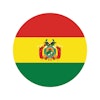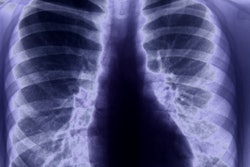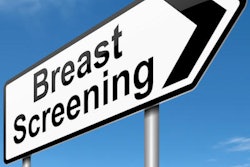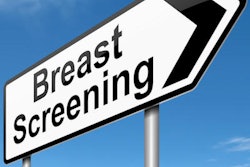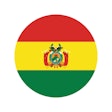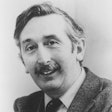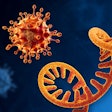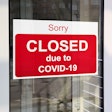
The U.K. public still trusts the breast screening program run by the National Health Service (NHS), despite the recent debacle in which thousands of women were thought to have missed their final invitation to screening, according to a study published on 6 September in BMJ Open.
U.K. researchers found that awareness of the glitch was widespread due to extensive media coverage, with almost 70% of the public aware of the problem. But knowledge of the debacle did not seem to affect public trust in the NHS or women's plans for future breast cancer screening, wrote a team led by Alex Ghanouni, PhD, an epidemiologist at University College London.
"Awareness of this story about errors in the Breast Screening Programme was hypothesized to have the potential for a range of negative effects," the group wrote. "However ... we did not find evidence that awareness of the story reduced trust in the NHS or participants' general practitioners, increased frequency of worry about breast cancer, or negatively affected future breast screening intentions."
In May 2018, British Health Secretary Jeremy Hunt disclosed to the House of Commons that 450,000 English women between the ages of 68 and 71 had not received invitations to a final breast screening exam.
"Mr. Hunt stated that since 2009, 'a computer algorithm failure' had resulted in approximately 450,000 women not being invited to their final regular breast screening appointment," noted Ghanouni and colleagues. "He indicated to the House that '[the] current best estimate based on statistical modeling ... is there may be between 135 and 270 women who had their lives shortened as a result.'"
The announcement led to extensive media coverage, including commentary that questioned the efficacy of breast cancer screening and expressed concern about its potential harms. In the end, a review released in December 2018 eventually found only 5,000 women had actually missed invitations to screening.
For their study, the authors sought to explore the general public's awareness of Hunt's announcement and ensuing media coverage with a survey given to 1,894 male and female participants in June of that year. The group tracked factors such as survey respondents' educational level, knowledge of the media coverage and reported statistics, ethnicity, concern about breast cancer (among women), and trust in the National Health Service (NHS).
The group found that 67% of survey respondents were aware of the media coverage; of these, most were older, white, and had a high level of education. Yet only 36% were able to correctly identify at least one of two headline statistics (number of women not invited and number whose lives may be shortened due to the lack of screening). The study didn't find evidence that awareness of media coverage led to distrust of general practitioners or the NHS, breast cancer concern, or future intention for breast cancer screening.
The researchers also found the following:
- 34.7% of participants were aware of follow-up commentaries regarding mortality and 29% were aware of follow-up commentaries regarding overdiagnosis
- 76.8% encountered the story on television, 21.4% heard it on the radio, 13.4% encountered the story in print newspapers, and 10.6% learned of it via online news websites
- 18.4% of participants who were aware of the story recognized the number of women not invited to screen; 21.2% correctly identified the estimated number of women whose lives could be shortened due to lack of screening
The findings shed some light on the effect of media coverage on healthcare topics and how this coverage may influence patient behavior.
"[The lack of negative effects from the media coverage] may be partly attributable to the news story saying little to reduce the perceived benefits of breast screening itself," the group wrote. "The framing of the story may have been expected to reinforce the perceived benefits of screening by indicating that missing screening had negative consequences in terms of additional breast cancer deaths."


